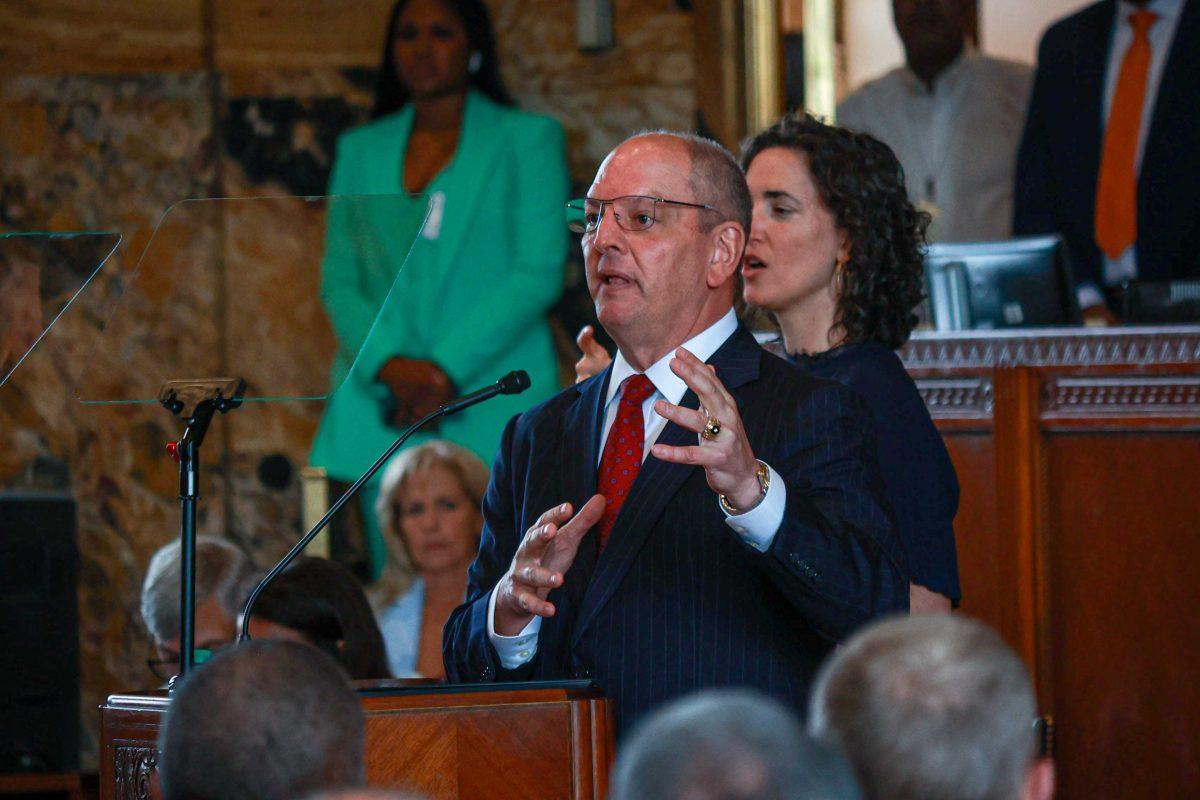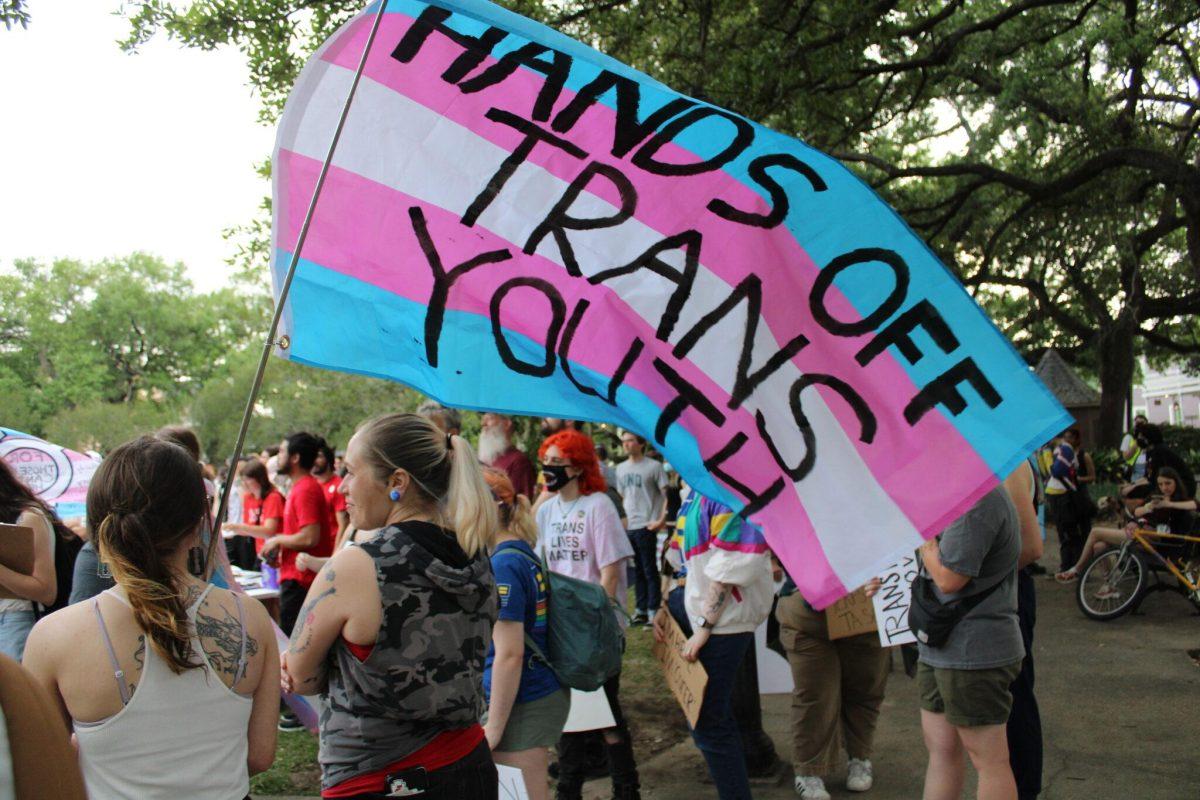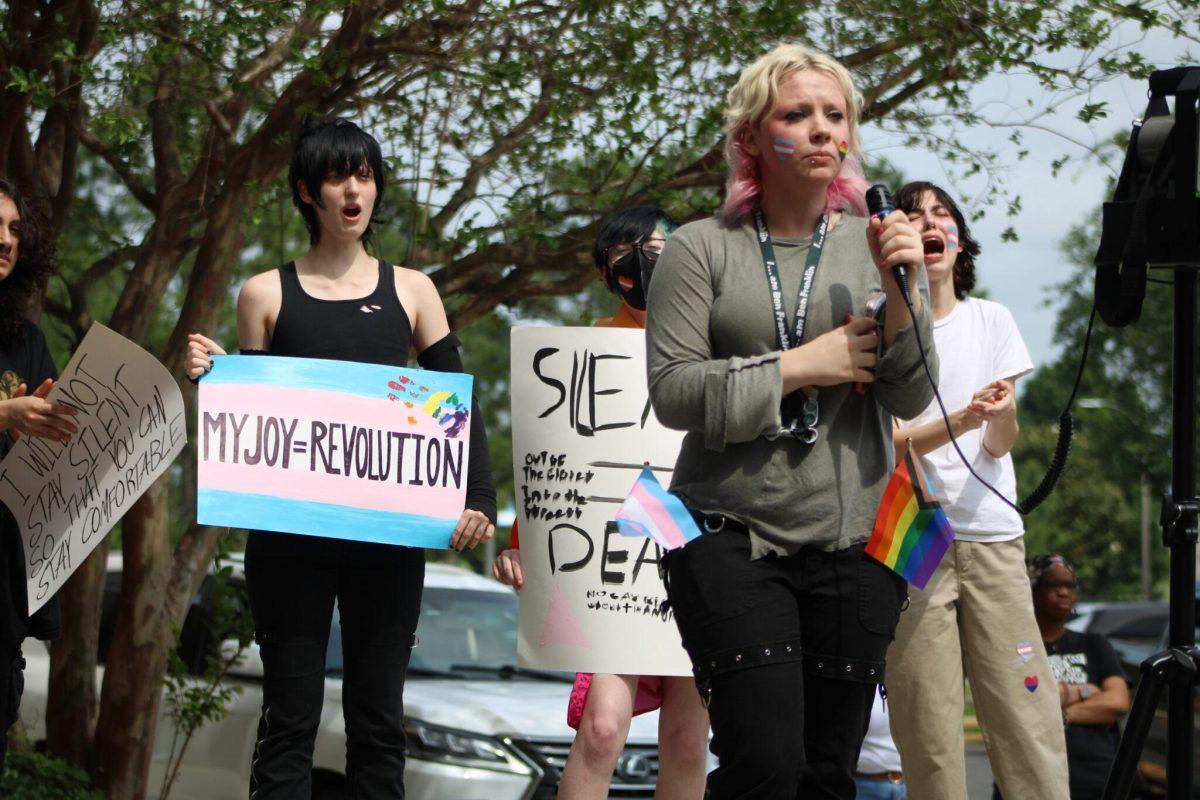Note: Click here to see the Louisiana Illuminator’s original reporting.
Gov. John Bel Edwards, a Democrat, will veto three anti-LGBTQ+ bills passed by the Republican-dominated Louisiana Legislature.
When asked Thursday at his annual end-of-session press conference, Edwards said it is his “expectation” to veto the bills.
While Edwards had previously declined to commit to reject the proposals, he raised concerns last month that the recent onslaught of anti-LGBTQ+ legislation would have a negative impact on the already high suicide rate for transgender Louisianians.
“Members of this community believe they’re being attacked for who they are,” Edwards said at a press conference in May. “Members of the the trans community are much more likely than other young people to have suicidal ideation or attempts or to actually be successful. These kinds of bills do not tend to help with that.”
“And in fact, they aggravate that situation and then cause it to be worse,” Edwards added.
Britain Forsyth, the legislative coordinator for Step Up Louisiana, a progressive organization, thanked Edwards for his impending veto in a statement to the Illuminator.
“I’m very thankful the Governor has made the decision to stand with LGBTQ+ youth and veto this hateful legislation,” Forsyth said. “All of us who worked hard against these bills will continue to fight to defeat them and let every queer and trans kid know they are loved by so many people in this state and that this is their home too.”
Acting in line with an unprecedented nationwide barrage of state level legislation, the Louisiana legislature passed three anti-LGBTQ+ bills targeting young queer and transgender people. While anti-LGBTQ+ legislation has been introduced in Louisiana in the past, it advanced much further this year than last year when the only two bills filed did not make it out of committee.
House Bill 466 by Rep. Dodie Horton, R-Haughton, prohibits discussion of gender identity and sexual orientation in public schools. House Bill 81 by Rep. Raymond Crews, R-Bossier City, would prohibit school employees from using transgender students’ preferred names or pronouns unless they have parental approval. House Bill 648 by Rep. Gabe Firment, R-Pollock, bans gender-affirming healthcare for trans youth.
Horton’s bill is similar to a Florida law referred to by critics as a “Don’t Say Gay” bill. Her proposal is much broader and would apply to K-12 grades, whereas Florida’s law applies only through the third grade.
Horton’s legislation applies to any school employee or volunteer, and it covers discussions in the classroom and during any extracurricular activity, meaning it effectively outlaws Gay Straight Alliance clubs.
While proponents of Crews’ proposal argue the bill prioritizes parental rights, teachers with religious or moral objections could opt to override parental consent to use a student’s given name, also called a deadname, as well as pronouns associated with their sex assigned at birth. Referencing a person by pronouns other than what they identify as is referred to as misgendering.
There is no recourse for educators who have a religious or moral objection to deadnaming or misgendering their students.
At the core of Crews’ proposal is his belief that parents have the right to know whether their kids are transgender.
“I don’t think it’s ever good for the parents to not to know what’s going on in school, and it ensures the rights of parents as primary caregivers to know what’s occurring in their children’s lives,” Crews said when the bill came up in the Senate Education Committee.
Advocates have raised concerns about what happens when parents find out — and don’t approve.
A survey from the Trevor Project found that 38% of transgender women, 39% of transgender men, 35% of nonbinary youth experienced homelessness as a result of parental rejection.
Firment’s proposal is similar to proposals filed in at least 17 other states, including every other state on the Gulf Coast. An Associated Press analysis found most of these bills have strong similarities to model legislation right-wing organizations have put forward.
Gender-affirming care is a catch-all term for medical treatments given to people to align their physical bodies with their identified gender. Gender-affirming care is used by transgender people, who identify as a gender different from their sex assigned at birth, as well as cisgender people, who identify as their assigned sex.
Gender-affirming procedures, such as top surgery, which adds or removes breast tissue, or bottom surgery, which constructs a vagina or penis are not recommended for minors, according to Dr. Kathryn Lowe, a pediatrician who represents the American Academy of Pediatrics Section on LGBT health and wellness.
Treatments are individualized to the patient. Some young patients will be prescribed fully reversible puberty blockers, giving the patient time to consider their options.
Later, a patient may be given hormone treatments that can help young people go through puberty in a way that allows their body to change in ways that align with their gender identity. These treatments are partially reversible.
Firment’s bill requires any youth currently receiving gender-affirming healthcare be taken off the course of treatment by the end of 2024. Providers who specialize in gender-affirming healthcare say that there is no length of time that would make discontinuing care safe, pointing to the risk of suicide.
Studies approximate 80% of transgender youth have considered suicide, and 40% report at least one suicide attempt. Research also indicates gender-affirming healthcare leads to improved mental health outcomes.
Chris Kaiser, advocacy director for the ACLU of Louisiana, expressed relief that the bills will not become law.
“These bills sow division, invite discrimination, and are at odds with our fundamental constitutional rights,” Kaiser said in a statement to the Illuminator.
The Legislature, which has a supermajority in both chambers, has the option to override the veto.
In Louisiana, a veto override session automatically occurs 40 days after a regular legislative session unless a majority of lawmakers in either the House or the Senate send in ballots to cancel it.
The first time legislators opted to hold the session was in 2021, when no overrides were successful. But the occasion marked a new era of increased tension between the legislature and the governor, who will be leaving office next year.
Peyton Rose Michelle, executive director of Louisiana Trans Advocates, said she hopes it wouldn’t come to a veto session.
“I pray legislators maintain Louisiana values and ensure these bills do not become law,” Michelle said in a statement to the Illuminator.
House Speaker Pro Tempore Rep. Tanner Magee, R-Houma, the second-highest ranking legislator in the House, thought a veto session is unlikely.
“Members are exhausted from this session, and they want to be back in their districts for campaigning, and they know there is a new governor next year that is more likely to sign,” Magee said in a statement to the Illuminator.
The Louisiana Republican Party-endorsed candidate for governor, Attorney General Jeff Landry, has previously expressed support for anti-LGBTQ+ legislation.
Louisiana governor to veto bills targeting LGBTQ+ youth
June 9, 2023
Gov. John Bel Edwards, who is term-limited, gave his final State of the State address Monday, April 10, 2023, highlighting some of his victories as governor.
More to Discover













